 The family of Seth Rich, the Democratic National Committee staffer who was shot and killed in Washington last summer has denied the report that their son leaked more than 44,000 emails to WikiLeaks before his death.
The family of Seth Rich, the Democratic National Committee staffer who was shot and killed in Washington last summer has denied the report that their son leaked more than 44,000 emails to WikiLeaks before his death.
Rich was killed as he walked home in D.C.. He was shot twice in the back but wasn’t robbed. His wallet, cellphone, keys, watch and necklace were all left on him. Nevertheless, D.C. police are calling it a robbery, sparking rumors that they are actively trying to cover up the true reason he was murdered.
Coincidentally, as reported by the Underground Reporter, Seth Rich was also slated to testify in a Clinton investigation. According to the Washington Post, prior to his death Rich was looking into several instances of DNC electoral fraud and voter suppression, and was to give testimony in the case regarding Clinton’s email server — the very scandal kicked off by the Wikileaks data dump.
After announcing that WikiLeaks would pay $20,000 for information leading to the conviction of Rich’s murderer, Assange went on an interview with Nieuwsurr. During the interview, Assange implied that Rich was his source.
Assange: Whistleblowers go to significant efforts to get us material and often significant risks. There was a 27-year old that works for the DNC who was shot in the back… murdered.. for unknown reasons as he was walking down the street in Washington.
Host: That was just a robbery wasn’t it?
Assange: No. There’s no finding.
Host: What are you suggesting?
Assange: I am suggesting that our sources take risks and they become concerned to see things occurring like that.
Host: But was he one of your sources, then?
Assange: We don’t comment on who our sources are.
Host: But why make the suggestion?
Assange: Because we have to understand how high the stakes are in the United States and that our sources face serious risks… that’s why they come to us so we can protect their anonymity.
Host: But it’s quite something to suggest a murder… that’s basically what you’re doing.
Earlier Tuesday, Fox News reported that 27-year-old Seth Rich may have been the one who leaked information about the DNC to WikiLeaks that showed, among other things, that the DNC favored Hillary Clinton over Bernie Sanders in the presidential primary.
The report states federal law enforcement investigators found 44,053 emails and 17,761 attachments between DNC leaders from January 2015 to May 2016 were sent by Rich to Gavin MacFayden, an American reporter and WikiLeaks director based in London who is now dead. That information was found in a FBI forensic report on Rich’s computer done within days of his murder.
Later in the day, Rich family spokesman Brad Bauman told NBC News the Fox News report was bogus. Bauman said Ed Butowsky, a conservative Dallas-based financial adviser, reached out to the family months ago with an offer to pay for a private investigator to look into Rich’s death.
The family agreed and paid Rod Wheeler, a former D.C. homicide detective, to look into the July 10 murder.
“My investigation up to this point shows there was some degree of email exchange between Seth Rich and WikiLeaks,” Wheeler told Fox News. “I do believe that the answers to who murdered Seth Rich sits on his computer on a shelf at the D.C. police or FBI headquarters.”
Bauman, trying to separate the family’s views about their son’s death from the hired detective’s claims, shared Butowsky’s role with NBC.
“We are a family who is committed to facts, not fake evidence that surfaces every few months to fill the void and distract law enforcement and the general public from finding Seth’s murderers,” the family’s statement continued. “The services of the private investigator who spoke to the press was offered to the Rich family and paid for by a third party, and contractually was barred from speaking to press or anyone outside of law enforcement or the family unless explicitly authorized by the family.”
A former law enforcement officer with firsthand knowledge of the investigation on Monday said Wheeler’s claim about Rich’s laptop was incorrect because the device had been searched and yielded no emails related to WikiLeaks. In addition, the FBI never looked over the evidence.
U.S. intelligence officials believe Russia, not Rich, hacked into the DNC and allowed that information to be sent to WikiLeaks.
Wheeler added he believes someone in the D.C. government, DNC or in Clinton’s camp is blocking the investigation.
Rich’s death is one of five deaths in a six week period of individuals who had been destructive to the Clinton campaign. One recent month, for instance, two prominent anti-Clinton activists were found dead within two days.
Renowned anti-Clinton researcher and writer for American Free Press (AFP), Victor Thorn, whose birth name was Scott Robert Makufka, was found dead from a gunshot wound near his home on August 1.
The very next day, Shawn Lucas, who was recently featured in a viral video serving the Democratic National Committee and its now-ousted head, Debbie Wasserman Schultz, with a class-action lawsuit alleging a massive voter fraud scheme for rigging the Democratic primary for Hillary Clinton — was found lifeless by his girlfriend on the bathroom floor.
PUBLIUS

 President Trump’s seemingly abrupt decision Tuesday to fire FBI Director James Comey was made at the recommendation of top Justice Department officials who claimed that his controversial handling of the Hillary Clinton email case last year rendered him unfit for the position.
President Trump’s seemingly abrupt decision Tuesday to fire FBI Director James Comey was made at the recommendation of top Justice Department officials who claimed that his controversial handling of the Hillary Clinton email case last year rendered him unfit for the position.

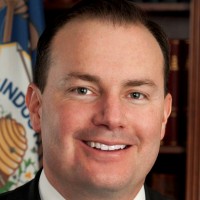
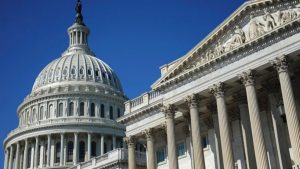 When Neil Gorsuch won long-overdue confirmation this month to serve on the United States Supreme Court, Republicans in turn won control of judiciary. This meant they led all three branches of the federal government – at least the three envisioned by our Founding Fathers – for the first time in a decade.
When Neil Gorsuch won long-overdue confirmation this month to serve on the United States Supreme Court, Republicans in turn won control of judiciary. This meant they led all three branches of the federal government – at least the three envisioned by our Founding Fathers – for the first time in a decade.
 The education problem has been growing in America for decades, as the costs of educating our children skyrocket and students are churned out of the public education system and universities with less and less actual education.
The education problem has been growing in America for decades, as the costs of educating our children skyrocket and students are churned out of the public education system and universities with less and less actual education.
 This will replace the current Student Loan program, which essentially supports a bloated, ineffective higher education system that is little more than a propaganda arm of the global leftist movement. It will also eliminate the current juggernaut of student debt, hanged around the neck of most graduat
This will replace the current Student Loan program, which essentially supports a bloated, ineffective higher education system that is little more than a propaganda arm of the global leftist movement. It will also eliminate the current juggernaut of student debt, hanged around the neck of most graduat A good place to start is President Donald Trump’s executive order, which calls for a review of national monument designations—a tool long used by presidents to unilaterally restrict land use. Also, see our article of November 21, 2016,
A good place to start is President Donald Trump’s executive order, which calls for a review of national monument designations—a tool long used by presidents to unilaterally restrict land use. Also, see our article of November 21, 2016, 
 A U.S. Navy destroyer had another close encounter with an Iranian Revolutionary Guard “fast attack craft” in the Persian Gulf Monday.
A U.S. Navy destroyer had another close encounter with an Iranian Revolutionary Guard “fast attack craft” in the Persian Gulf Monday.

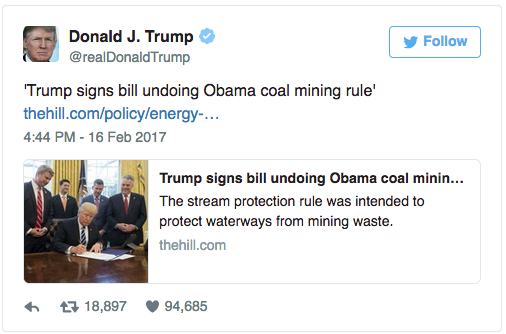
 FBI Director James Comey distrusted former Attorney General Loretta Lynch and senior officials at the Justice Department, believing they might provide
FBI Director James Comey distrusted former Attorney General Loretta Lynch and senior officials at the Justice Department, believing they might provide  Trump Succeeds Where Obama Failed for Years
Trump Succeeds Where Obama Failed for Years
 Howard Dean Claims The First Amendment Doesn’t Protect Ann Coulter Expressing her Traditional Opinions
Howard Dean Claims The First Amendment Doesn’t Protect Ann Coulter Expressing her Traditional Opinions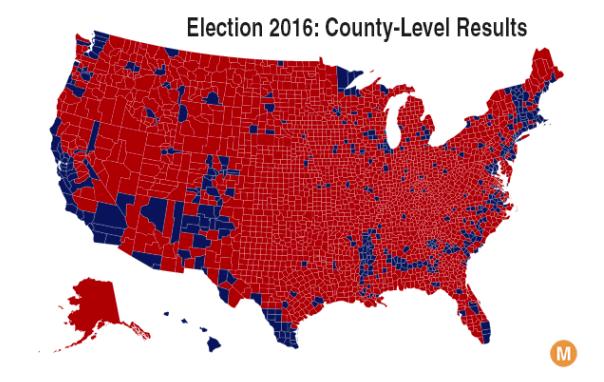
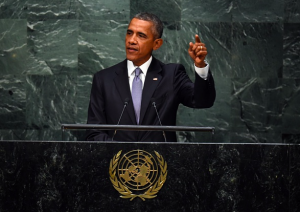 A civil war has begun.
A civil war has begun. The left was enormously successful in this regard. It was so successful that it lost all sense of proportion and decided to be open about its views and to launch a political power struggle after losing an election.
The left was enormously successful in this regard. It was so successful that it lost all sense of proportion and decided to be open about its views and to launch a political power struggle after losing an election.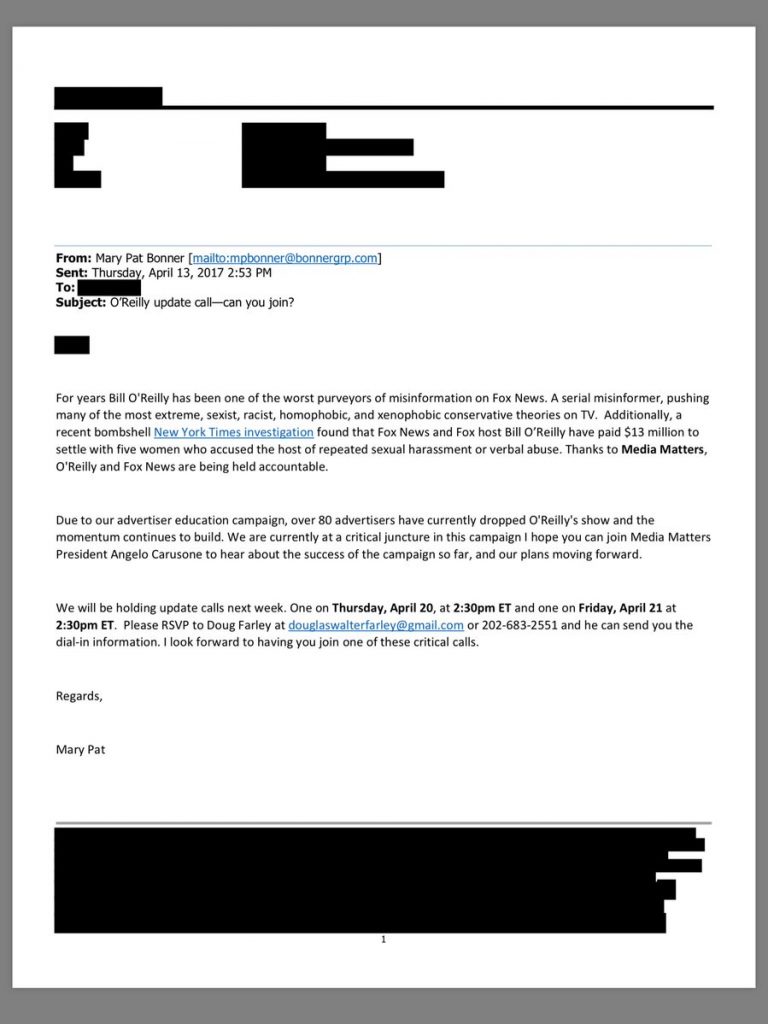



 Fresno shooting spree: 3 people killed, suspect who yelled ‘Allahu Akbar,’ says he ‘hates white people’ in custody
Fresno shooting spree: 3 people killed, suspect who yelled ‘Allahu Akbar,’ says he ‘hates white people’ in custody
 In a recent
In a recent 
 Video released by the Pentagon on Friday showed the “Mother of all Bombs” plummeting from the sky and exploding in eastern Afghanistan, as military officials said it flattened a cave-and-tunnel complex controlled by the Islamic State terror group.
Video released by the Pentagon on Friday showed the “Mother of all Bombs” plummeting from the sky and exploding in eastern Afghanistan, as military officials said it flattened a cave-and-tunnel complex controlled by the Islamic State terror group. GOP SURVIVES FIRST TEST
GOP SURVIVES FIRST TEST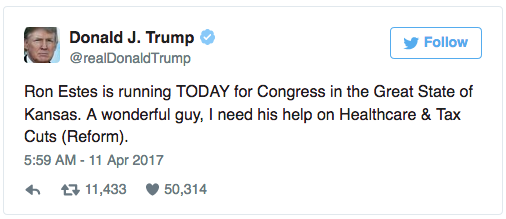
Let’s take a look at past predictions to determine just how much confidence we can have in today’s environmentalists’ predictions.
In 1970, when Earth Day was conceived, the late George Wald, a Nobel laureate biology professor at Harvard University, predicted, “Civilization will end within 15 or 30 years unless immediate action is taken against problems facing mankind.”
Also in 1970, Paul Ehrlich, a Stanford University biologist and best-selling author of “The Population Bomb,” declared that the world’s population would soon outstrip food supplies.
In an article for The Progressive, he predicted, “The death rate will increase until at least 100-200 million people per year will be starving to death during the next 10 years.”
He gave this warning in 1969 to Britain’s Institute of Biology: “If I were a gambler, I would take even money that England will not exist in the year 2000.”
On the first Earth Day, Ehrlich warned, “In 10 years, all important animal life in the sea will be extinct.”
Despite such predictions, Ehrlich has won no fewer than 16 awards, including the 1990 Crafoord Prize, the Royal Swedish Academy of Sciences’ highest award.
In International Wildlife (July 1975), Nigel Calder warned, “The threat of a new ice age must now stand alongside nuclear war as a likely source of wholesale death and misery for mankind.”
In Science News (1975), C.C. Wallen of the World Meteorological Organization is reported as saying, “The cooling since 1940 has been large enough and consistent enough that it will not soon be reversed.”
In 2000, climate researcher David Viner told The Independent, a British newspaper, that within “a few years,” snowfall would become “a very rare and exciting event” in Britain. “Children just aren’t going to know what snow is,” he said. “Snowfalls are now just a thing of the past.”
In the following years, the U.K. saw some of its largest snowfalls and lowest temperatures since records started being kept in 1914.
In 1970, ecologist Kenneth Watt told a Swarthmore College audience:
Also in 1970, Sen. Gaylord Nelson, D-Wis., wrote in Look magazine: “Dr. S. Dillon Ripley, secretary of the Smithsonian (Institution), believes that in 25 years, somewhere between 75 and 80 percent of all the species of living animals will be extinct.”
Scientist Harrison Brown published a chart in Scientific American that year estimating that mankind would run out of copper shortly after 2000. Lead, zinc, tin, gold, and silver were to disappear before 1990.
Erroneous predictions didn’t start with Earth Day.
In 1939, the U.S. Department of the Interior said American oil supplies would last for only another 13 years. In 1949, the secretary of the interior said the end of U.S. oil supplies was in sight.
Having learned nothing from its earlier erroneous claims, in 1974 the U.S. Geological Survey said the U.S. had only a 10-year supply of natural gas.
The fact of the matter, according to the U.S. Energy Information Administration, is that as of 2014, we had 2.47 quadrillion cubic feet of natural gas, which should last about a century.
Hoodwinking Americans is part of the environmentalist agenda. Environmental activist Stephen Schneider told Discover magazine in 1989:
In 1988, then-Sen. Timothy Wirth, D-Colo., said: “We’ve got to … try to ride the global warming issue. Even if the theory of global warming is wrong … we will be doing the right thing anyway in terms of economic policy and environmental policy.”
Americans have paid a steep price for buying into environmental deception and lies.
By Walter E. Williams